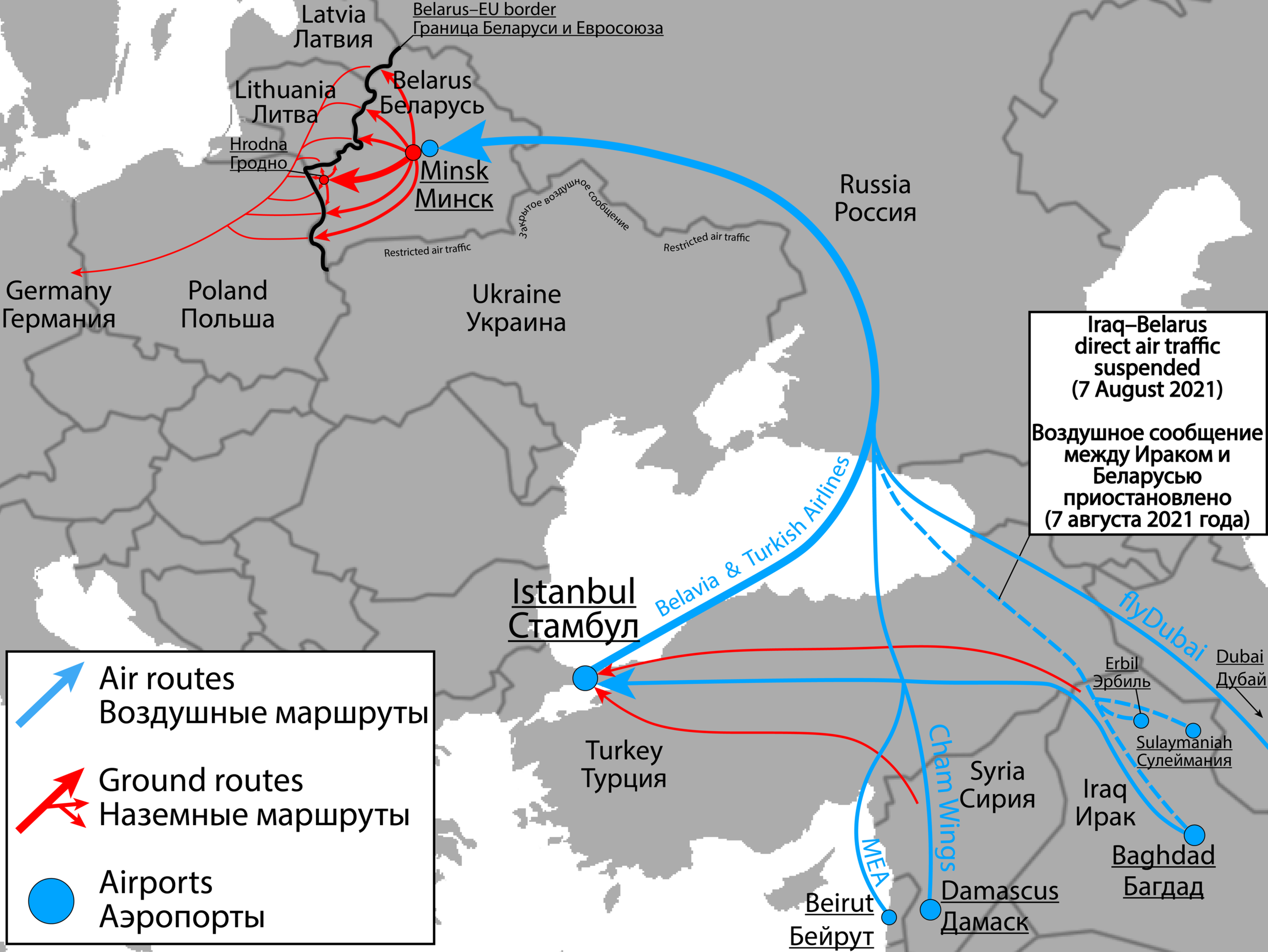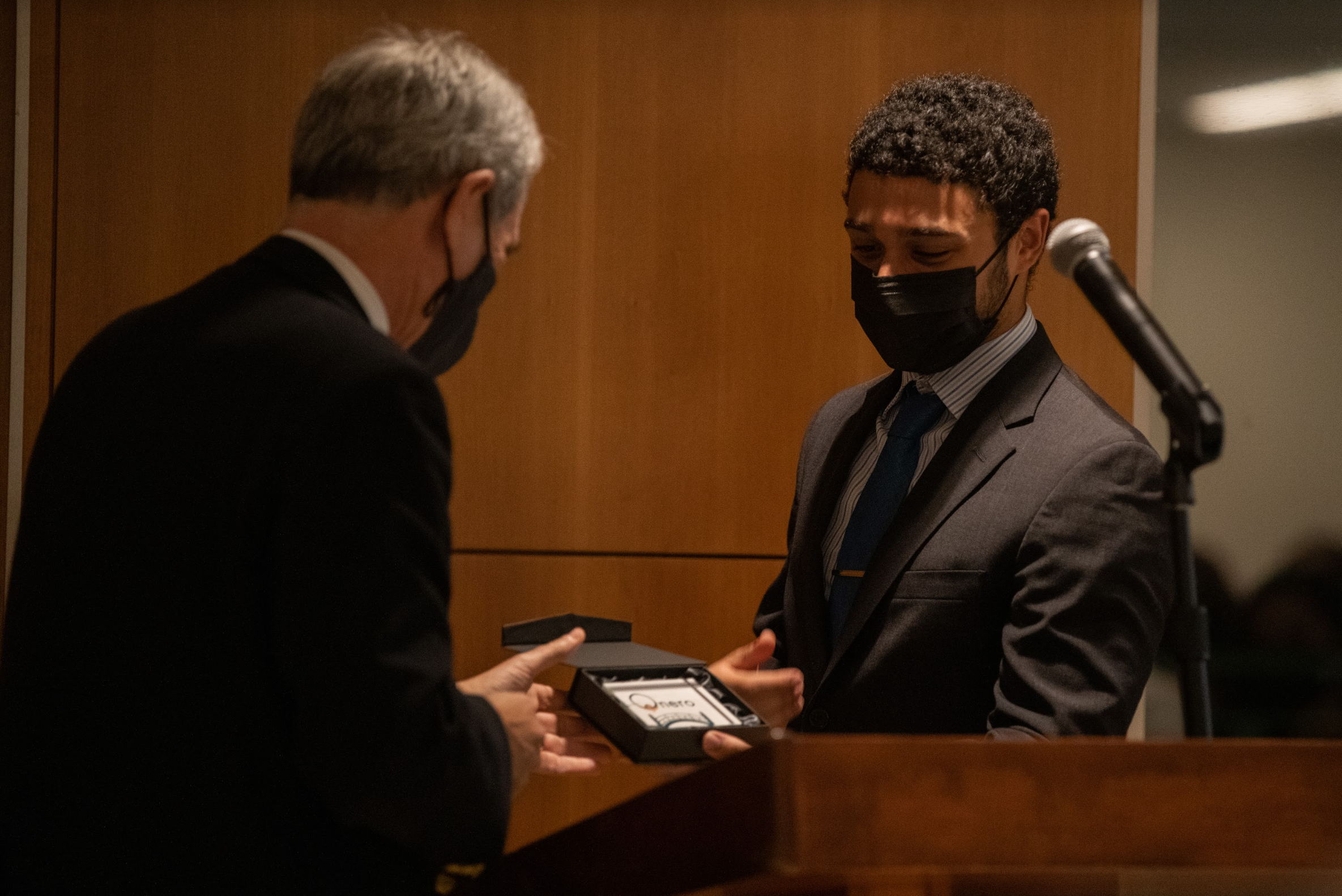
Research
Date Published
- July 2025
- June 2025
- May 2025
- April 2025
- March 2025
- February 2025
- January 2025
- December 2024
- November 2024
- October 2024
- September 2024
- August 2024
- July 2024
- June 2024
- March 2024
- February 2024
- October 2023
- March 2023
- February 2023
- January 2023
- November 2022
- October 2022
- January 2022
- November 2021
- October 2021
- August 2021
- July 2021
- March 2021
- September 2020
- August 2020
- July 2020
- February 2020
Filters to only view publications from a particular program:
An Examination of the Growing Rivalry Between France and Türkiye
In May 2025, during the European Political Community summit in Tirana, Albania, a video of Turkish President Reçep Tayyip Erdoğan grabbing the French President's finger and refusing to shake his hand went viral on social media. This clash was not the first time such an incident between the two leaders occurred. In 2020, Erdoğan said that Macron needed mental treatment over an argument when the French president defended the country’s policy of laïcité after a teacher got beheaded. The personal tension between Macron and Erdoğan illustrates the growing geopolitical rivalry between Ankara and Paris.
The Iran-Iraq War and the Securitization of Iran’s Energy Sector
This paper argues that the Iran-Iraq War was essential to the securitization of Iran’s energy sector by transforming it from a standard political issue into a matter of national survival. The paper will first examine how Iran enabled the Islamic Revolutionary Guard Corps (IRGC) to consolidate control of the country’s energy industry as a means of safeguarding it from external pressure, followed by an investigation into how the regime created a secret “shadow fleet” network to facilitate illicit oil exports, which Iran began to perceive as a crucial tool for its survival. Finally, the paper will explore how Iran has employed a range of unconventional tactics to defend its critical energy infrastructure from external attack, thereby cementing Tehran’s energy sector as a top priority for the regime.
The German Immigration Crisis
Germany’s immigration policy, shaped by historical labor needs and recent refugee crises, has led to rising tensions, nationalist backlash, and crime concerns, prompting stricter reforms and calls for controlled borders.
Echoes of Empire: The Resurgence of Nationalism and Fascist Symbolism in Post-Communist Romania
Imperial legacies, fascist symbolism, and post-communist disillusionment fueled the nationalist resurgence in the 2025 Romanian elections. Historical grievances, Orthodox identity, and anti-Western sentiment shaped voter behavior and facilitated the rise of far-right politics.
Why the Minsk Agreements Failed and the Future of European Security
The Minsk Accords failed to bring a lasting solution to the Russia-Ukraine conflict. Ten years later, Europe is stepping up to provide security guarantees for Ukraine and ensure greater strategic autonomy.
The failure of the European Defense Community: A discussion between the past and future of European defense
The prevalence of national sovereignties over the European Defense Community project dramatically shaped the nature of the European Union today.
Poland’s Belarusian Border and the EU
Poland is facing a border crisis, accusing Belarus of using migrants as a political tool. To combat this influx of people, it has heavily armed the border and introduced legislation that may strain its relationship with the EU, known for its welcoming immigration laws.
From Charles de Gaulle to Emmanuel Macron: should France’s vision of greater military autonomy shape Europe’s security future?
Facing shifting U.S. priorities and rising global tensions, Europe debates adopting France’s strategic autonomy model to reduce reliance on NATO, aiming to build a unified, independent defense strategy despite internal divisions.
Beyond Fascist Solidarity: Mussolini's Strategic Gamble in Spain
Mussolini’s intervention in the Spanish Civil War was driven less by ideological alignment and more by strategic ambitions in the Western Mediterranean, anti-communist fears, and the pursuit of alliances with Franco and Hitler.
The Impact of the Lebensborn Program on European Immigration Relations
The Lebensborn Program was a program in Nazi Germany intended to promote the “Aryan race,” encouraging the birth of German blonde blue-eyed babies, while discouraging the birth of other races. The program had tremendous negative consequences, one of which is the lasting impact it has left on European racial relations by glorifying certain ethnicities over others. Many current anti-immigration parties and movements in Europe recently use rhetoric very similar to that of the program, showing yet another lasting effect of the Holocaust.
What to Make of The European Union’s Outreach to the Indo Pacific
Washington’s increasing attacks on the transatlantic alliance have led to the Europeans to seek partners elsewhere, especially in the Indo-Pacific. These outreach efforts by the EU illustrate its desire to look for alternative partners beyond Beijing, Moscow, and Washington. However, to deepen cooperation, the EU should put more emphasis on its commitment to multilateralism, rather than hyper-focusing on human rights.
Challenging Democratic Frameworks: A Critical Look at Berman's Lessons from Europe
Much of the world can collectively agree that the solution for peaceful governance, one that upholds the rights of the people, lies in the development of democratic governments. However differing opinions arise when it comes to approaching the formation of new democracies.
Europe Risks Becoming History’s Victim
Lest the European Union wish to become the new Austria-Hungary, it seems incumbent to recognize that if she doesn’t take an active role in shaping the world, others will shape it for her and against her.
Poland’s Belarusian Border and the EU
Poland has been facing a recent border crisis, with a rush of migrants that it accuses neighbor Belarus of instrumentalizing. To combat this influx of people, Poland has heavily armed the border and has recently introduced new legislation that could severely damage its relation to the EU, who has been known for its welcoming immigration laws.
The Pacific Crucible
As global instability distracts American attention across Europe and the Middle East, a strategic reckoning is long overdue. Washington must recognize the urgency that it faces in the Indo-Pacific. The rise of China as a peer competitor presents not only an economic challenge but a military one. The ideological dogma of the Chinese Communist Party makes reunification with Taiwan a necessity. If the United States is not careful, they may well be walking into a military confrontation that they are wildly unprepared for.
Leveraging AI for Energy Security: A Transatlantic Perspective
This paper explores how AI is transforming energy security on both sides of the Atlantic, optimizing legacy and renewable energy systems, enhancing grid resilience, and supporting decarbonization efforts. It emphasizes the importance of U.S.-EU cooperation in leveraging AI for a sustainable, secure energy future.
The Politics of Enlargement: EU Member States’ Attitudes Toward Turkey’s Accession
The EU's approach to enlargement is strategic, yet Turkey's bid faces resistance. This article examines how history, culture, and politics influence several EU member states's views on Turkey’s membership.
Contextualizing the Modern Captagon Trade
This is the first in a multi-part series exploring Captagon and the future of the amphetamine trade inside the Middle East. In this article, we contextualize the importance of Captagon and explore its associated trade to both the former Assad regime and various non-state actors within the Middle East.
The Implications of Donald Trump’s Presidency for India’s Economy
The doors of President Trump’s second term opened with full force, raising eyebrows and ruffling feathers both domestically and abroad. In less than one hundred days, one hundred executive orders were passed in the newly redecorated Oval Office, aiming to fulfill the administration’s “America First” promises. Three of these executive orders issued tariffs against China, Mexico, and Canada, backed by the nascent usage of the International Emergency Economic Powers Act (IEEPA). Despite suspensions and fervent economic fears, China and Canada retaliated with tariffs on agricultural products and energy respectively, sparking international concerns over a potential trade war. Amidst this backdrop of butted heads and gritted teeth, the gaudy Air India One touched down on American soil on February 12, 2025, as Prime Minister Narendra Modi arrived in Washington to discuss the future of relations with the United States.
Rethinking China’s Data Center Strategy for AI dominance: Cooling Methods, Energy Efficiency, and Heat Recycling
With the proliferation of communication and network technology, data centers have become increasingly more important to maintain low latency and increase the pace of online services. This growth is driven by expanding needs for data processing, storage, and digital communication, which will naturally lead to higher energy consumption. Without sufficient investment in data centers and promotion of efficient energy use, generative AI is unlikely to realize its full potential. It is estimated that AI could unlock between 2.6 and 4.4 trillion dollars throughout the global economy if data center electricity demand is met. As a result, energy efficiency has become the primary concern for operators, surpassing even security.






















